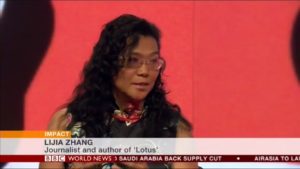
China has a lot of historical luggage it has trouble coming to terms with, says author and journalist Zhang Lijia. The Korean was, claimed by China as a victory, is one of major historical issues the country has to come to terms with, she writes in a comment at the South China Morning Post.
Zhang Lijia
Was it a victory as China claimed? Most historians outside the mainland agreed that it was a genuine stalemate, resulting in the 1953 armistice. However, the war was “a powerful vehicle for creating a stronger sense of socialist identity at home”, according to University of Oxford historian Rana Mitter, author of the recently published book China’s Good War. “Mao’s regime used the war as a means of mobilising sentiment within China, helping to increase the wider sense of nationalist feeling.”
I believe the war gave a morale boost to millions of Chinese, in the wake of the humiliation China had suffered at the hands of foreign powers. Having won the respect and fear of its neighbours, China became a major regional power after the war.
Even if it had been a victory, how about its cost? China spent over 10 billion yuan on the war (US$1.5 billion at current exchange rates), a devastating amount for a country that was desperately poor and scarred by a civil war that had just ended. And there was the heavy human cost. According to official figures, nearly 360,000 Chinese soldiers were either killed or wounded, including Mao’s son, Mao Anying. The true death toll could be higher.
The Korean war is thought to be one of the most destructive conflicts in the modern era, with around 3 million casualties. The monumental event deserves to be commemorated and the truth surrounding it needs to be told.
Much more at the South China Morning Post.
Zhang Lijia is a speaker at the China Speakers Bureau. Do you need her at your (online) meeting or conference? Do get in touch or fill in our speakers’ request form.
Are you looking for more stories by Zhang Lijia? Do check out this list.




